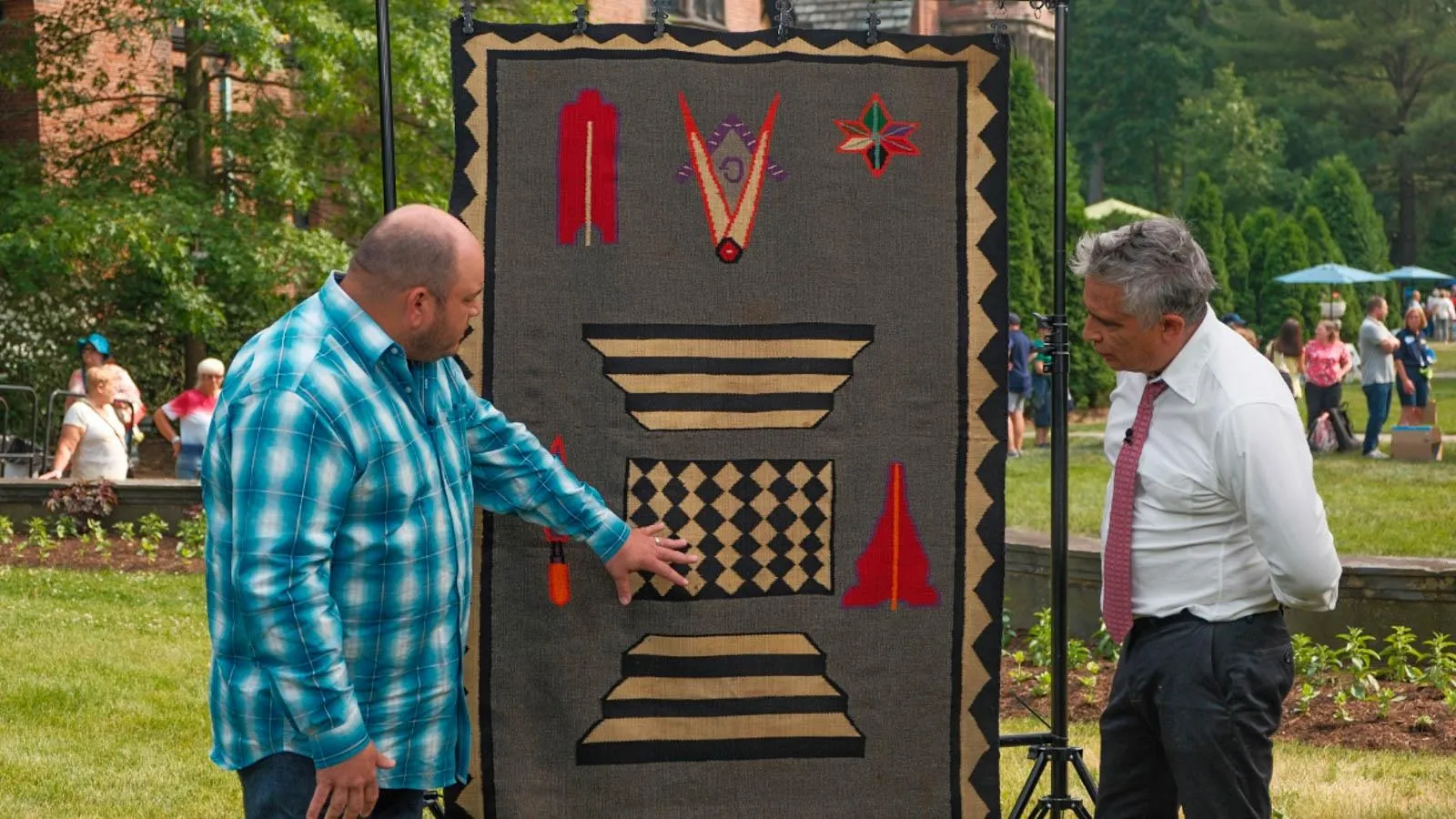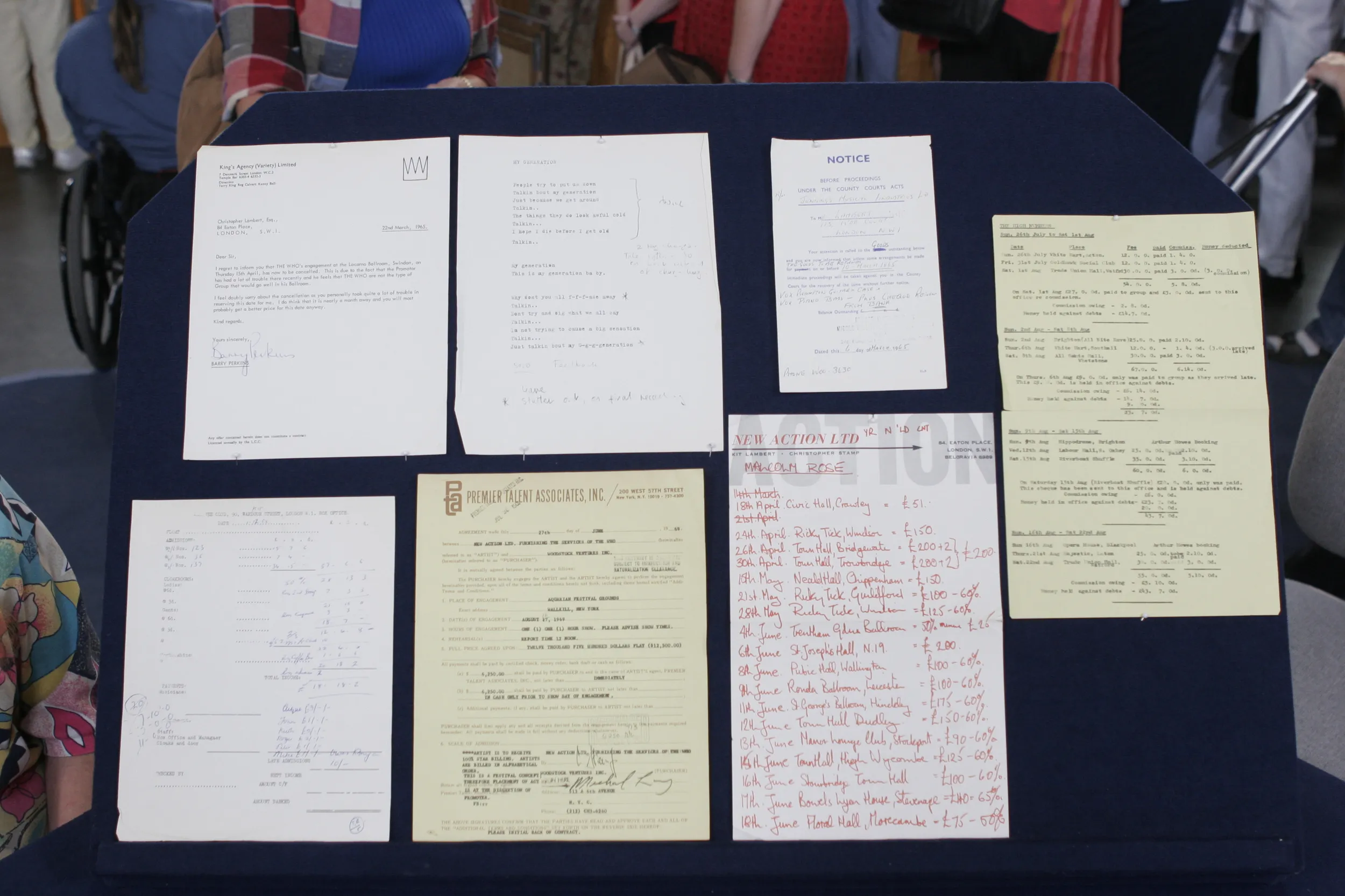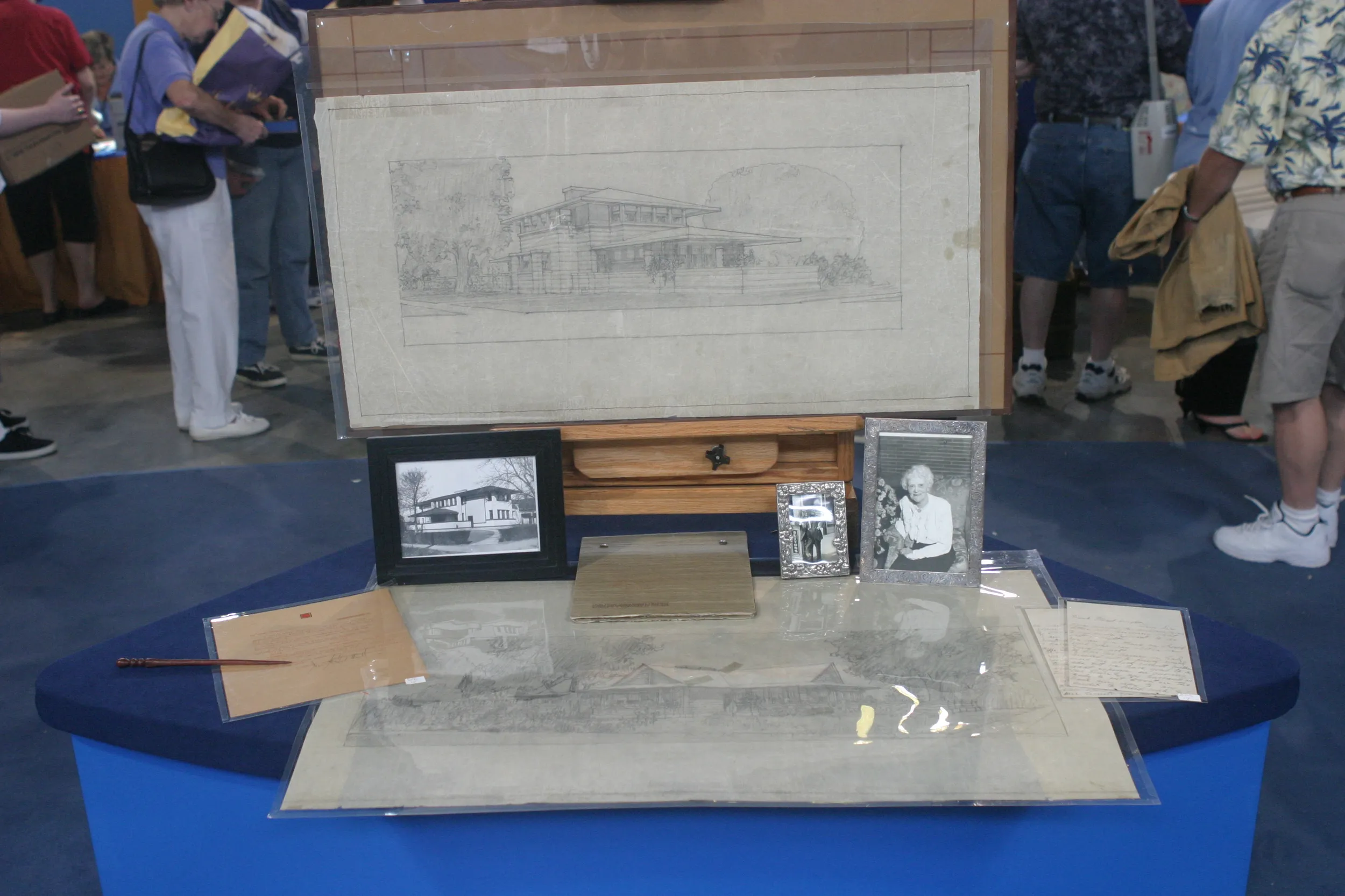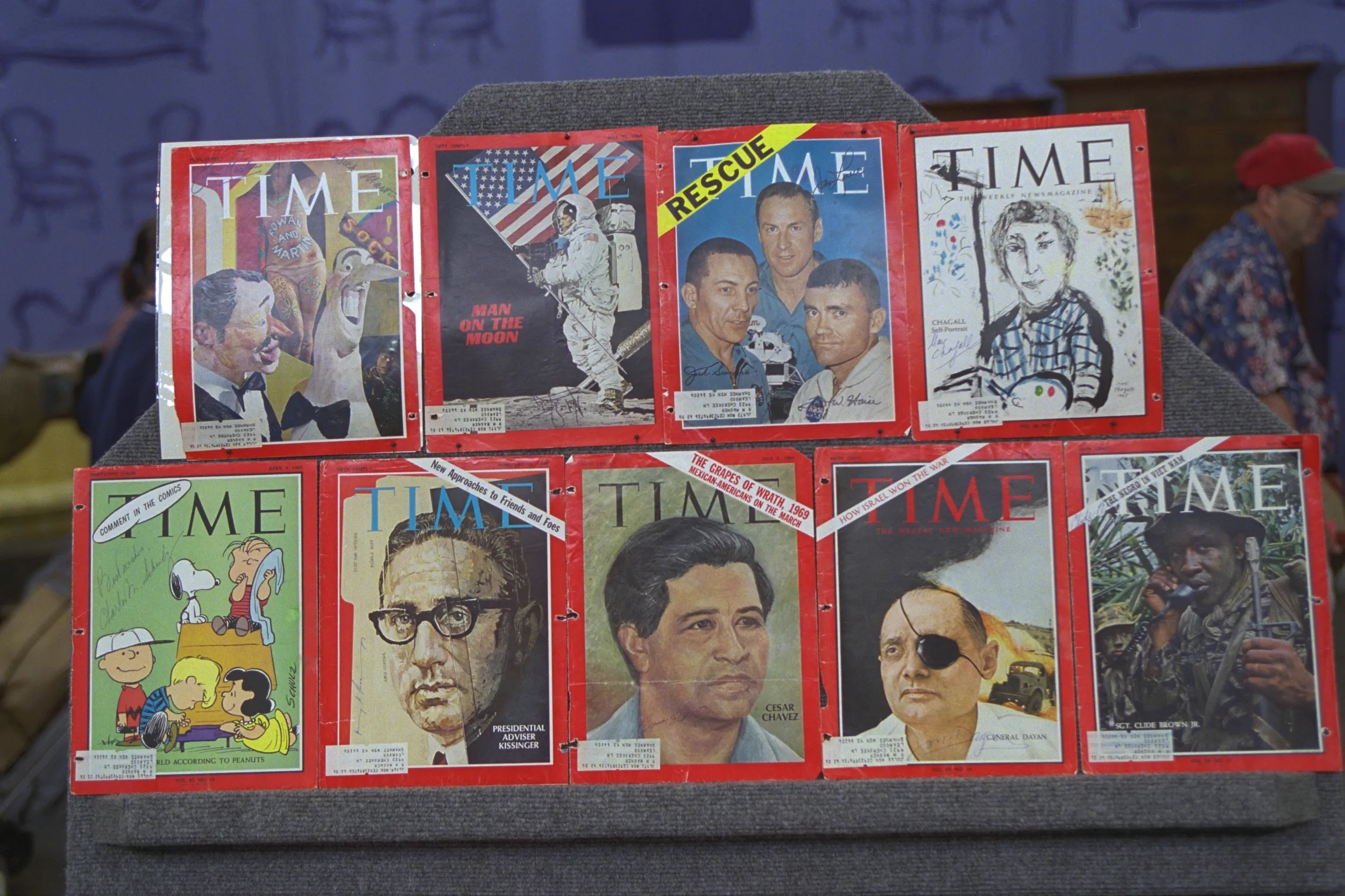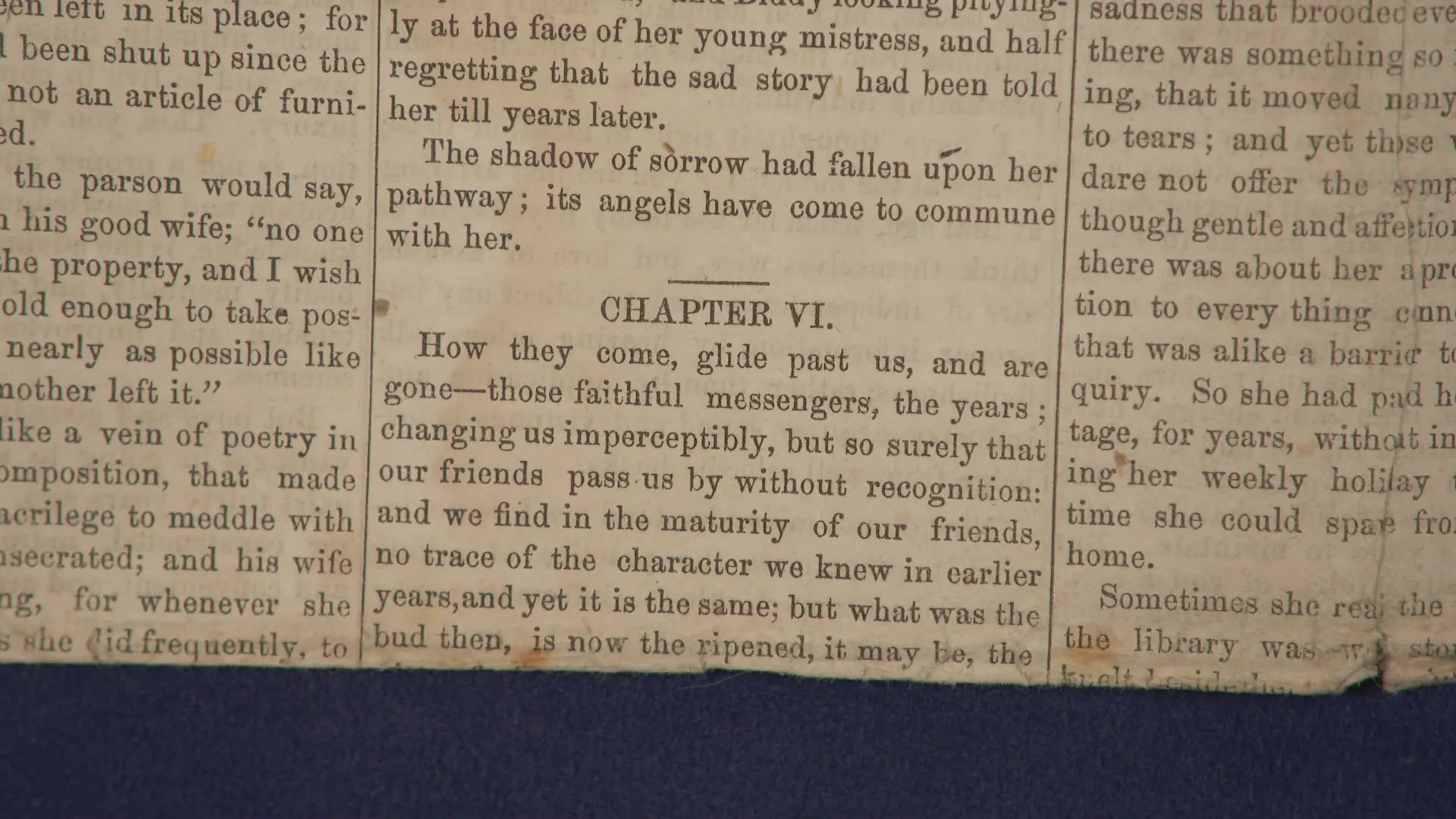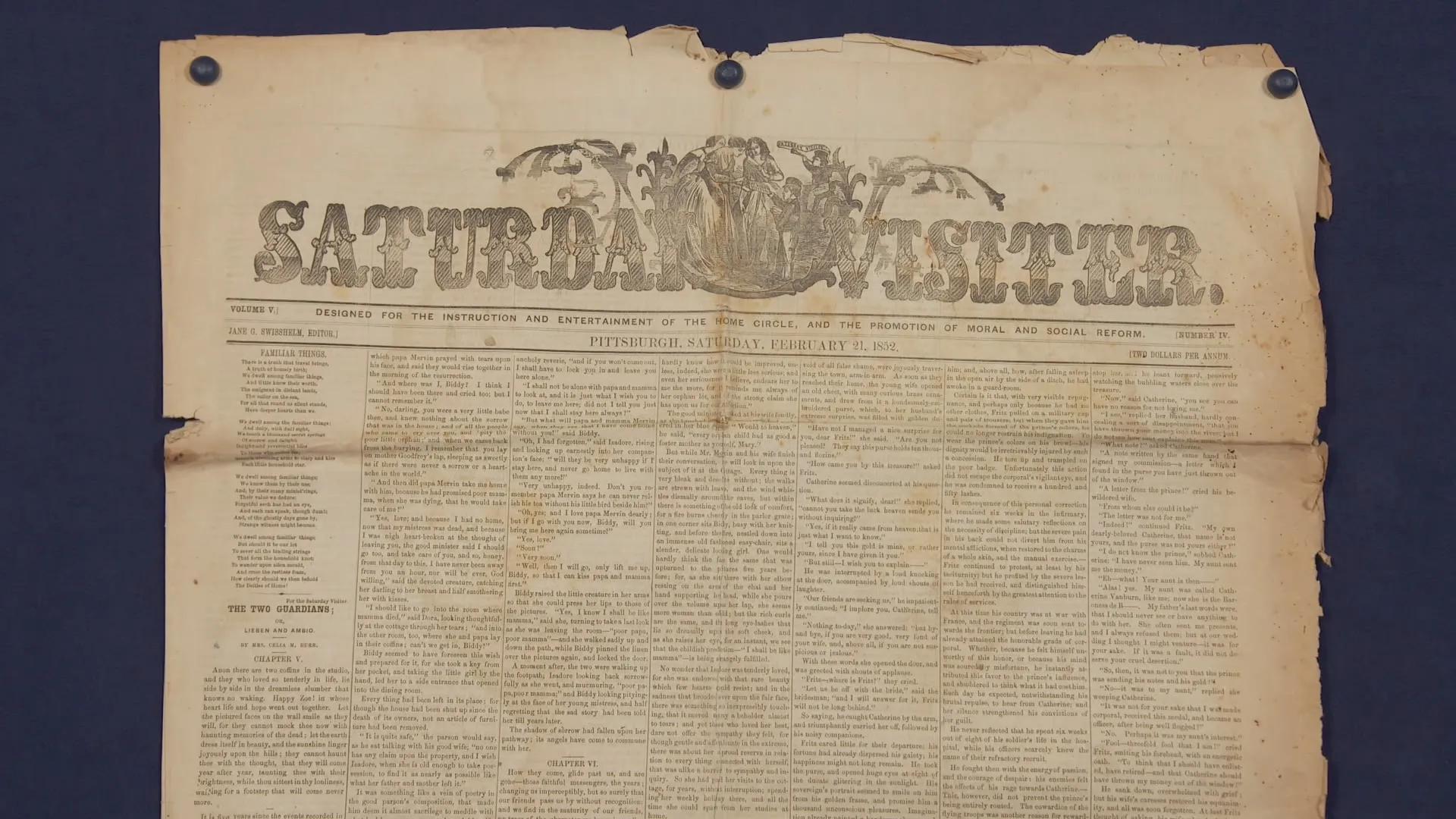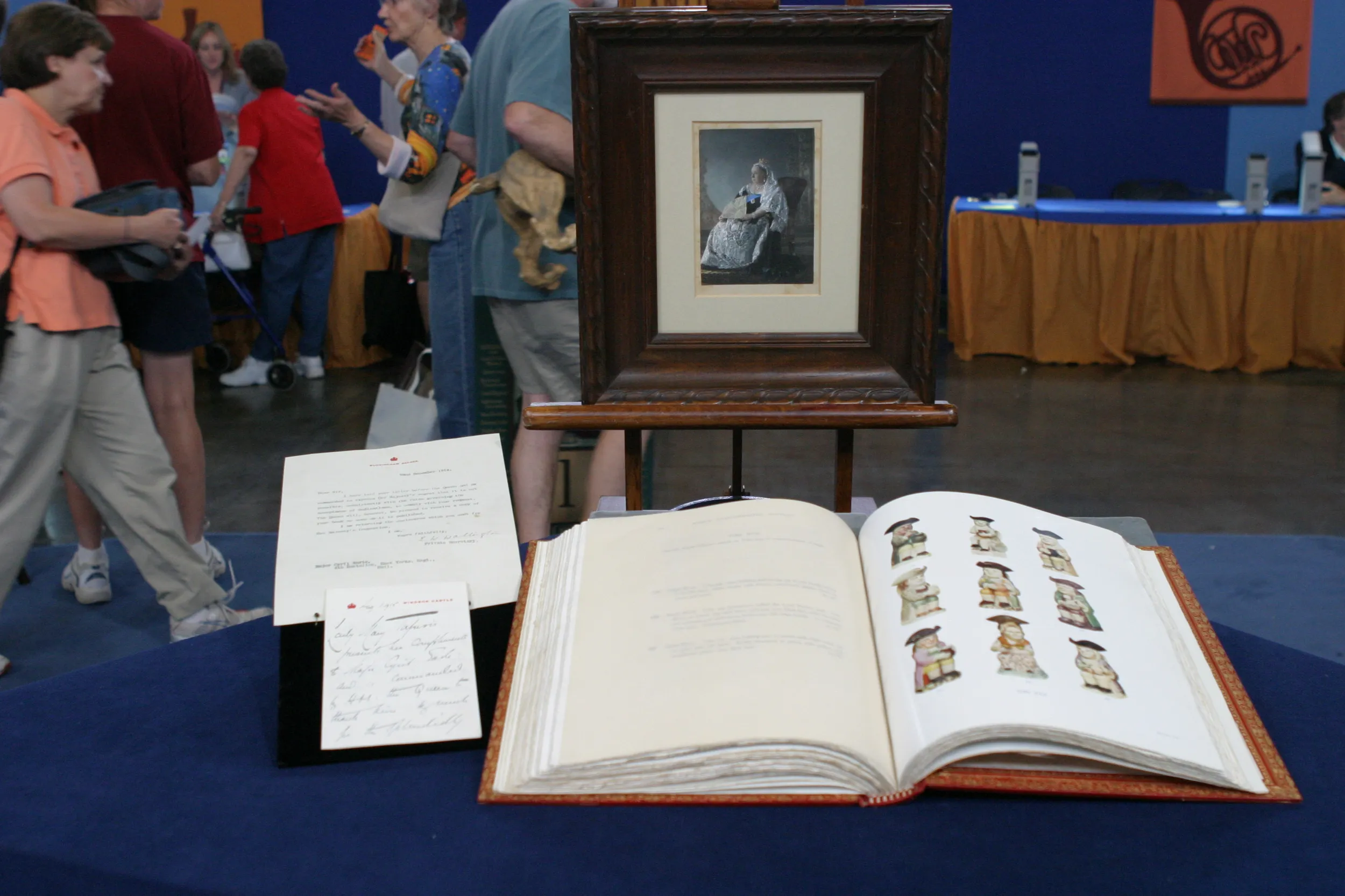GUEST: I brought you many issues of the Saturday Visiter, a Pittsburgh newspaper
APPRAISER: Mm-hmm.
GUEST: started in 1847-ish. Jane Swisshelm was a women's rights activist back in the 1840s and '50s and '60s. Also an abolitionist. And she really hustled to have this weekly newspaper in Pittsburgh, Pennsylvania.
APPRAISER: She started in 1847 in Pittsburgh. Not profitable. And when she went to the printer, he s... he said, "Are you insane?"
GUEST: (laughs)
APPRAISER: And then neither one of them had ever worked with somebody of the opposite sex. They were concerned what people would think, so they actually took the shutters off the windows in the newsroom...
GUEST: Yeah.
APPRAISER: ...so people wouldn't think untoward things.
GUEST: Right.
APPRAISER: It's a fantastic collection of 40 or 50 different issues of the Saturday Visiter, published with the amazing tagline "Designed for the instruction and entertainment of the home circle and the promotion of moral and social reform." The Saturday Visiter was… had about 6,000 subscribers, according to Jane. They did publish the paper weekly. And it cost a whole $2 per year. There's also this little nugget about married women owning property in Pennsylvania.
GUEST: Right, right. We've been taught that we can thank Jane for helping to pass
legislation for… that women could then own property in Pennsylvania.
APPRAISER: When she got divorced, her mother died...
GUEST: Mm-hmm.
APPRAISER: ...and her mother's property went to her husband because she hadn't yet gotten divorced yet.
GUEST (inhales)
APPRAISER: Yeah. And her mom had changed her will...
GUEST: Right.
APPRAISER: ...when she knew she wasn't well, so that it wouldn't go to the husband. And it did anyway, and she sued. And she did get divorced in 1857, and she moved to St. Cloud, Minnesota,
GUEST: Mm-hmm.
APPRAISER: started another newspaper, the St. Cloud Visiter, and then got into a dispute with a man in St. Cloud who had come from a slaveholding state and brought enslaved people with him. And she got into a fight in the press with him. And eventually an angry mob went to the printing office,
GUEST: Mm-hmm.
APPRAISER: broke up her printing press, and threw it in the river. She gave up on Minnesota. She won the court case.
GUEST: Mm-hmm.
APPRAISER: She got her mother's land back. And she and her daughter fixed up her ancestral home. And then she wrote a memoir called Half a Century. There was a women's convention in Akron in 1851...
GUEST: Yeah.
APPRAISER: ...the one where Sojourner Truth did...
GUEST: Mm-hmm.
APPRAISER: ...her "Ain't I a Woman"--
GUEST: Mm-hmm.
APPRAISER: Jane was there. She was there as a speaker.
GUEST: Oh.
APPRAISER: And she wrote about it-- I mean, she was physically here in Akron...
GUEST: Right. Right.
APPRAISER: ...when that speech happened.
GUEST: It's amazing.
APPRAISER: It's amazing.
GUEST: It is.
APPRAISER: She fought with a lot of people.
GUEST: Yes. She was feisty.
APPRAISER: She got divorced.
GUEST: Well, she was feisty.
APPRAISER: Yeah.
GUEST: She was standing up for herself and her sisters.
APPRAISER: She was stand... she was standing up for herself in a time when that was, um, not really happening very much.
GUEST: Right. Right.
APPRAISER: I love stuff like this.
GUEST: Mm-hmm.
APPRAISER: These are what we like to call ephemera.
GUEST: Mm-hmm.
APPRAISER: They're ephemeral in the sense that they don't really call out to be kept. But thank God for the people who do hoard things and keep things, because now we could be here today.
GUEST: (laughs) Right.
APPRAISER: I would put an auction value of $3,000 to $5,000.
GUEST: (clicks tongue) That's wonderful. But I think her words in these papers are even more valuable.

